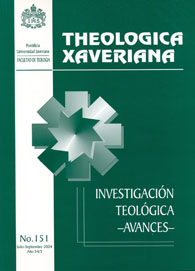Abstract
Este artículo busca relacionar algunos pensamientos que sobre el cristianismo tiene el filósofo austriaco, y que se encuentran consignados en la obra Aforismos-cultura y valor, con los planteamientos más relevantes de la teología apofática que se han desarrollado en nuestra cultura. Los teólogos que se consideran prominentes en este modo de hacer teología, y que serán considerados aquí, son: Karl Barth, Martín Lutero, Guillermo de Ockham y Tertuliano. No son, obviamente, los únicos autores para ser tenidos en cuenta, pero esta selección puede permitir una visión panorámica de lo que ha sido esta corriente teológica en Occidente. Por tanto, se reitera, que de lo que se tratará a continuación será de poner en contacto las consideraciones de Wittgenstein sobre el cristianismo (primer momento) con los planteamientos más relevantes de algunos teólogos del apofatismo (segundo momento) para intentar articular o relacionar esas dos perspectivas provenientes de campos distintos como lo son la filosofía y la teología, tercer momento.
This journal is registered under a Creative Commons Attribution 4.0 International Public License. Thus, this work may be reproduced, distributed, and publicly shared in digital format, as long as the names of the authors and Pontificia Universidad Javeriana are acknowledged. Others are allowed to quote, adapt, transform, auto-archive, republish, and create based on this material, for any purpose (even commercial ones), provided the authorship is duly acknowledged, a link to the original work is provided, and it is specified if changes have been made. Pontificia Universidad Javeriana does not hold the rights of published works and the authors are solely responsible for the contents of their works; they keep the moral, intellectual, privacy, and publicity rights.
Approving the intervention of the work (review, copy-editing, translation, layout) and the following outreach, are granted through an use license and not through an assignment of rights. This means the journal and Pontificia Universidad Javeriana cannot be held responsible for any ethical malpractice by the authors. As a consequence of the protection granted by the use license, the journal is not required to publish recantations or modify information already published, unless the errata stems from the editorial management process. Publishing contents in this journal does not generate royalties for contributors.


